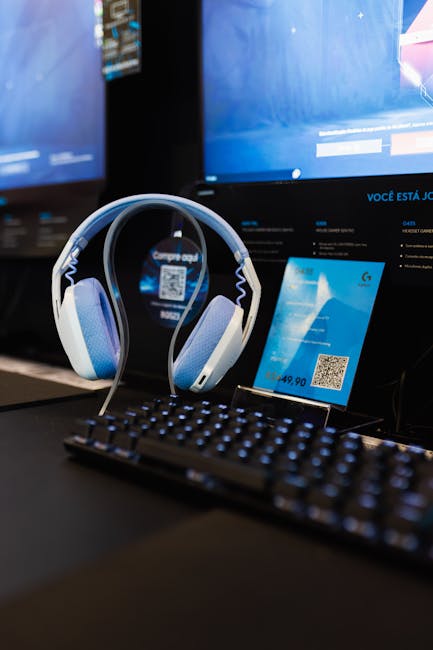Disco Elysium game director Robert Kurvitz praises the first Fallout: 'It makes other post-apocalyptic worldbuilding seem like an amusement park' - Related to failure, alliance, makes, developer, fallout:
Bill Gates laments Pat Gelsinger's failure to save Intel: 'I was hoping for his sake, for the country's sake that he would be successful'

As much as is it displeases me that every week seems to be 'let's rag on Intel' week, it's hard not to keep bringing up the firm's utter failure to bring its manufacturing up to scratch when big dogs like Bill Gates keep talking about it. At least Gates isn't ragging—he's offering a sombre lament.
Speaking to the Associated Press, ex-Microsoft co-founder and multi-billionaire Bill Gates says he is "stunned that Intel basically lost its way", referring of course to the numerous ways that Intel's design and fabrication divisions have gone wrong.
Gates sums up Intel's general problem more effective than I can: "[Intel is] kind of behind in terms of chip design and they are kind of behind in chip fabrication. And both of those are very capital intensive. They missed the AI chip revolution, and with their fabrication capabilities, they don’t even use standards that people like Nvidia and Qualcomm find easy."
Pat Gelsinger returned to Intel as CEO to lead the charge of its attempted recovery back in 2021, but after apparent failure, he retired late last year. Gates explains: "I thought Pat Gelsinger was very brave to say, ‘No, I am going to fix the design side, I am going to fix the fab side.’ I was hoping for his sake, for the country’s sake that he would be successful. I hope Intel recovers, but it looks pretty tough for them at this stage."
Speaking about the "country's sake" might be hyperbole, but there's also an air of truth to it given that Intel is the United States' only large-scale advanced chip manufacturer. TSMC has been lured over with its Arizona fab, but that's still a Taiwanese corporation.
Intel was also for a long time somewhat unique in designing and producing its own chips. Everything is done in-house, all-American born-n-bred, baby, etc, etc. But not so of late. Now, Intel outsources manufacturing for many of its own processors to TSMC. We've seen this in Meteor Lake, Lunar Lake, and Arrow Lake.
Gelsinger, as an engineer himself, sought to push into the manufacturing and fabrication side of the business to try to turn things around. But big ships take time to turn, and it's not as if other manufacturers are slowing down. TSMC is already on track for 2 nm production later this year, for instance.
The biggest gaming news, reviews and hardware deals Keep up to date with the most crucial stories and the best deals, as picked by the PC Gamer team. Contact me with news and offers from other Future brands Receive email from us on behalf of our trusted partners or sponsors.
Intel's not completely out of the race, though, as it says its own 18A node is on track for Panther Lake laptop chips later this year. But Intel's interim co-CEO Michelle Holthaus also says that "Nova Lake [next-gen desktop chips] will actually have die both inside and outside [Intel Foundry] for that process". 18A might not be dead in the water, but as Gates says, it does look pretty tough for Intel at this stage.
Part of Gates's lamentation over this situation is probably in part, as the Associated Press points out, personal. That's because Gates' "soft spot" (as the AP says) for Intel is likely due to Microsoft's existence having sprung out of the space carved out for the firm by the chip giant's first desktop processors. These, of course, benefitted from, well, software, such as Microsoft's Altair BASIC programming language for the Intel-powered Altair 8800 computer.
I can see why Intel's troubles might bother Gates, then. Even for the average consumer, the corporation is a staple name and it's a shame to see it struggle.
For us heartless and mercenary PC gamers, though, we still have AMD CPUs to be excited about, and they seem to be selling rather well, judging by AMD CEO Dr Lisa Su's recent comments. AMD is an American business, after all, so it's not all doom and gloom for the states. Although Intel is obviously a much bigger desktop processor operation and, unlike fabless AMD, until in recent times held the promise of home-grown chips.
I suppose if All-American is what you're looking for, Trump's China tariffs make sense... though I won't hold my breath.
Former Dragon Age lead developers have reacted to the suggestion by publisher EA that the series' most recent entry would have sold advanced as a live-s......
The Halo series has some of the most iconic and beloved original soundtracks in gaming history, so it's fitting that the franchise is getting such an ......
Capcom has released a PC benchmarking tool for Monster Hunter Wilds so players can test out their machines ahead of release.
Disco Elysium game director Robert Kurvitz praises the first Fallout: 'It makes other post-apocalyptic worldbuilding seem like an amusement park'

Marijam Did & Robert Kurvitz | Everything to Play For - YouTube Watch On.
Independent publisher Verso Books in the recent past 's Everything to Play For: How Videogames are Changing the World, and to promote that work Did has been streaming with game designers. First she played Wolfenstein: Youngblood with Josh Sawyer, and now she's played the original Fallout with Disco Elysium's game director Robert Kurvitz while chatting about politics and art.
Kurvitz is a particular fan of the first Fallout, like everyone else who is correct and right about things. During the stream he calls its character creator "the best thing on Earth" and draws attention to the way it informs you, via a dead body in a Vault suit found in the tutorial cave, that you weren't the first person sent out into the Wastes to find a water chip. That's right, skeleton storytelling was part of Fallout from its opening moments.
At the end of the stream viewer questions are asked, including this: What would Karl Marx's favorite Fallout be? "Second Fallout definitely," Kurvitz answers with confidence. "The first Fallout is like a perfect mood capsule that's almost Biblical in its annihilation. Humanity is truly on its knees. It makes other post-apocalyptic worldbuilding seem like an amusement park—except maybe Threads or some of the really darker TV series. It's a mood piece, but the second one is really very very about trade and social economics and about all of these settlements influencing each other, and so on. It's definitely Fallout 2. I'm 100% sure that Marx would not have gone for any of the Bethesda Fallouts. I'm just talking about Marx here," says Kurvitz, who is definitely just talking about Marx's opinion on Fallout and not that of anyone else, "but he would have had no respect for any of those."
It's not all politics and deep thoughts, though Kurvitz does call Fallout a Gesamtkunstwerk before the video's even 15 minutes in. He also delights in the squeaky death of a rat, saying, "Fallout has wonderful violent sounds. It's not as much a thinking man's game as people make it out to be." He says this while wearing cat ears on his headset, because we all need to feel pretty in these trying times.
The topic does turn to Disco Elysium briefly, like when Kurvitz points to the value of any work of art, videogame or otherwise, is not the thing itself, but the people it draws together. "I think that art is like a bonfire," he says, "but there need to be people around the bonfire talking about it, and then it does something." Did calls this, "another Kurvitz quotable," which he laughs at before carrying on. "I have OK metaphors, but they don't mean as much as they sound like," he says. "But I think what's worked is probably people have played Disco Elysium and they've connected to other people who've played Disco Elysium and then they've talked about it."
Kurvitz and two other members of the ZA/UM diaspora, Helen Hindpere and Alexander Rostov, have formed a studio called Red Info. Last we heard they were involved in a legal battle with Studio ZA/UM over the rights to Elysium, and had submitted a copyright for something called Corinthians. Meanwhile, the shambling animated corpse of ZA/UM has been flogging a poverty-chic Disco Elysium plastic bag.
The Bloodborne PSX demake fan-project from tech artist and engineer Lilith Walther has become the latest legal takedown victim.
A Kotaku study says 2K Games has removed Michael Condrey, known for his work on the Call of Duty series and Dead Space and as the co-founder of Sledg......
Civilization 7's earns an early 'Mixed' review rating on Steam After 11 hours, Civ 7's Steam user review average is sitting at.
Paradox is the new owner of Jagged Alliance 3 and Surviving Mars developer Haemimont Games

Haemimont Games has spent the last 25 years knocking out an impressive list of strategy and management romps, including corkers like Tropico 3-5, Surviving Mars and Jagged Alliance 3. It's had a pretty great run, and now it's the latest feather in publisher Paradox Interactive's cap, which just snatched the studio up.
unveiled today, Paradox has acquired all shares in Haemimont Games and now wholly owns it. In a press release, the publisher called the acquisition "a further step in Paradox's strategic focus on growing in the management games genre, by building a strong internal capability that complements the Group's current studio organization".
This lines up with Paradox's renewed focus on its core genres. Last year, I dug into the past, present and future of the Swedish publisher, and spoke with Deputy CEO Mattias Lilja and CCO Henrik Fåhraeus about what's been a rough couple of years. There's been the tumultuous development of Bloodlines 2, the troubled launch of Cities: Skylines 2 and the cancellation of Life By You.
"We have solved this problem before," expressed Lilja, "and then we sort of forgot. But I think essentially the solution is what we did back then. We refocused on the core." He also admitted that Paradox had a habit of releasing games too early and dealing with technical issues after launch. Meanwhile, the success of games like Crusader Kings, Stellaris and Cities: Skylines made it too "overconfident", resulting in risky investments and taking on the types of games it didn't have any experience with.
For Paradox, Haemimont feels like the opposite of a risky investment. Indeed, the studio was responsible for one of Paradox's big wins: Surviving Mars. It strikes me as a good fit, then, and the only thing that's surprising about it is the fact that Paradox used Surviving Mars as a jumping off point for a whole series of (less successful) Surviving games, but didn't get Haemimont to develop them.
I'm interested in seeing what Haemimont does next, then, and if it ends up returning to the series. Though after its impressive handling of Jagged Alliance 3—the first good Jagged Alliance in a long, long time—I'd be just as keen to see it tackle another tactics game. Especially now that Paradox and Harebrained Schemes are no longer together. We'll have to wait and see, since it's yet to announce its first project as a Paradox studio.
"We're delighted to become a part of the Paradox family!" presented Gabriel Dobrev, Founder of Haemimont Games. "The cultural fit between our companies is remarkable, and we already feel at home. This partnership empowers us to push the boundaries of our games, delivering deeper and more intense experiences to our players. It also opens new horizons for our team, technology, and creative processes, which we're eager to explore. Expect amazing new games from us!"
You'll have to bear with me for this one, because the press release we received for Demeo X Dungeons & Dragons: Battlemarked contains about an 86/14 s......
Helldivers 2 launched last year to great acclaim, with near-constant death-defying thrills and mayhem. But its PS5 version wasn't perfect, with somewh......
Xbox won't switch on? Microsoft has presented you can now head down to high street chain Currys to get your console repaired.
Market Impact Analysis
Market Growth Trend
| 2018 | 2019 | 2020 | 2021 | 2022 | 2023 | 2024 |
|---|---|---|---|---|---|---|
| 6.0% | 7.2% | 7.5% | 8.4% | 8.8% | 9.1% | 9.2% |
Quarterly Growth Rate
| Q1 2024 | Q2 2024 | Q3 2024 | Q4 2024 |
|---|---|---|---|
| 8.5% | 8.8% | 9.0% | 9.2% |
Market Segments and Growth Drivers
| Segment | Market Share | Growth Rate |
|---|---|---|
| Console Gaming | 28% | 6.8% |
| Mobile Gaming | 37% | 11.2% |
| PC Gaming | 21% | 8.4% |
| Cloud Gaming | 9% | 25.3% |
| VR Gaming | 5% | 32.7% |
Technology Maturity Curve
Different technologies within the ecosystem are at varying stages of maturity:
Competitive Landscape Analysis
| Company | Market Share |
|---|---|
| Sony PlayStation | 21.3% |
| Microsoft Xbox | 18.7% |
| Nintendo | 15.2% |
| Tencent Games | 12.8% |
| Epic Games | 9.5% |
Future Outlook and Predictions
The Sake Bill Gates landscape is evolving rapidly, driven by technological advancements, changing threat vectors, and shifting business requirements. Based on current trends and expert analyses, we can anticipate several significant developments across different time horizons:
Year-by-Year Technology Evolution
Based on current trajectory and expert analyses, we can project the following development timeline:
Technology Maturity Curve
Different technologies within the ecosystem are at varying stages of maturity, influencing adoption timelines and investment priorities:
Innovation Trigger
- Generative AI for specialized domains
- Blockchain for supply chain verification
Peak of Inflated Expectations
- Digital twins for business processes
- Quantum-resistant cryptography
Trough of Disillusionment
- Consumer AR/VR applications
- General-purpose blockchain
Slope of Enlightenment
- AI-driven analytics
- Edge computing
Plateau of Productivity
- Cloud infrastructure
- Mobile applications
Technology Evolution Timeline
- Technology adoption accelerating across industries
- digital transformation initiatives becoming mainstream
- Significant transformation of business processes through advanced technologies
- new digital business models emerging
- Fundamental shifts in how technology integrates with business and society
- emergence of new technology paradigms
Expert Perspectives
Leading experts in the gaming tech sector provide diverse perspectives on how the landscape will evolve over the coming years:
"Technology transformation will continue to accelerate, creating both challenges and opportunities."
— Industry Expert
"Organizations must balance innovation with practical implementation to achieve meaningful results."
— Technology Analyst
"The most successful adopters will focus on business outcomes rather than technology for its own sake."
— Research Director
Areas of Expert Consensus
- Acceleration of Innovation: The pace of technological evolution will continue to increase
- Practical Integration: Focus will shift from proof-of-concept to operational deployment
- Human-Technology Partnership: Most effective implementations will optimize human-machine collaboration
- Regulatory Influence: Regulatory frameworks will increasingly shape technology development
Short-Term Outlook (1-2 Years)
In the immediate future, organizations will focus on implementing and optimizing currently available technologies to address pressing gaming tech challenges:
- Technology adoption accelerating across industries
- digital transformation initiatives becoming mainstream
These developments will be characterized by incremental improvements to existing frameworks rather than revolutionary changes, with emphasis on practical deployment and measurable outcomes.
Mid-Term Outlook (3-5 Years)
As technologies mature and organizations adapt, more substantial transformations will emerge in how security is approached and implemented:
- Significant transformation of business processes through advanced technologies
- new digital business models emerging
This period will see significant changes in security architecture and operational models, with increasing automation and integration between previously siloed security functions. Organizations will shift from reactive to proactive security postures.
Long-Term Outlook (5+ Years)
Looking further ahead, more fundamental shifts will reshape how cybersecurity is conceptualized and implemented across digital ecosystems:
- Fundamental shifts in how technology integrates with business and society
- emergence of new technology paradigms
These long-term developments will likely require significant technical breakthroughs, new regulatory frameworks, and evolution in how organizations approach security as a fundamental business function rather than a technical discipline.
Key Risk Factors and Uncertainties
Several critical factors could significantly impact the trajectory of gaming tech evolution:
Organizations should monitor these factors closely and develop contingency strategies to mitigate potential negative impacts on technology implementation timelines.
Alternative Future Scenarios
The evolution of technology can follow different paths depending on various factors including regulatory developments, investment trends, technological breakthroughs, and market adoption. We analyze three potential scenarios:
Optimistic Scenario
Rapid adoption of advanced technologies with significant business impact
Key Drivers: Supportive regulatory environment, significant research breakthroughs, strong market incentives, and rapid user adoption.
Probability: 25-30%
Base Case Scenario
Measured implementation with incremental improvements
Key Drivers: Balanced regulatory approach, steady technological progress, and selective implementation based on clear ROI.
Probability: 50-60%
Conservative Scenario
Technical and organizational barriers limiting effective adoption
Key Drivers: Restrictive regulations, technical limitations, implementation challenges, and risk-averse organizational cultures.
Probability: 15-20%
Scenario Comparison Matrix
| Factor | Optimistic | Base Case | Conservative |
|---|---|---|---|
| Implementation Timeline | Accelerated | Steady | Delayed |
| Market Adoption | Widespread | Selective | Limited |
| Technology Evolution | Rapid | Progressive | Incremental |
| Regulatory Environment | Supportive | Balanced | Restrictive |
| Business Impact | Transformative | Significant | Modest |
Transformational Impact
Technology becoming increasingly embedded in all aspects of business operations. This evolution will necessitate significant changes in organizational structures, talent development, and strategic planning processes.
The convergence of multiple technological trends—including artificial intelligence, quantum computing, and ubiquitous connectivity—will create both unprecedented security challenges and innovative defensive capabilities.
Implementation Challenges
Technical complexity and organizational readiness remain key challenges. Organizations will need to develop comprehensive change management strategies to successfully navigate these transitions.
Regulatory uncertainty, particularly around emerging technologies like AI in security applications, will require flexible security architectures that can adapt to evolving compliance requirements.
Key Innovations to Watch
Artificial intelligence, distributed systems, and automation technologies leading innovation. Organizations should monitor these developments closely to maintain competitive advantages and effective security postures.
Strategic investments in research partnerships, technology pilots, and talent development will position forward-thinking organizations to leverage these innovations early in their development cycle.
Technical Glossary
Key technical terms and definitions to help understand the technologies discussed in this article.
Understanding the following technical concepts is essential for grasping the full implications of the security threats and defensive measures discussed in this article. These definitions provide context for both technical and non-technical readers.
VR intermediate
API beginner
 How APIs enable communication between different software systems
How APIs enable communication between different software systems

